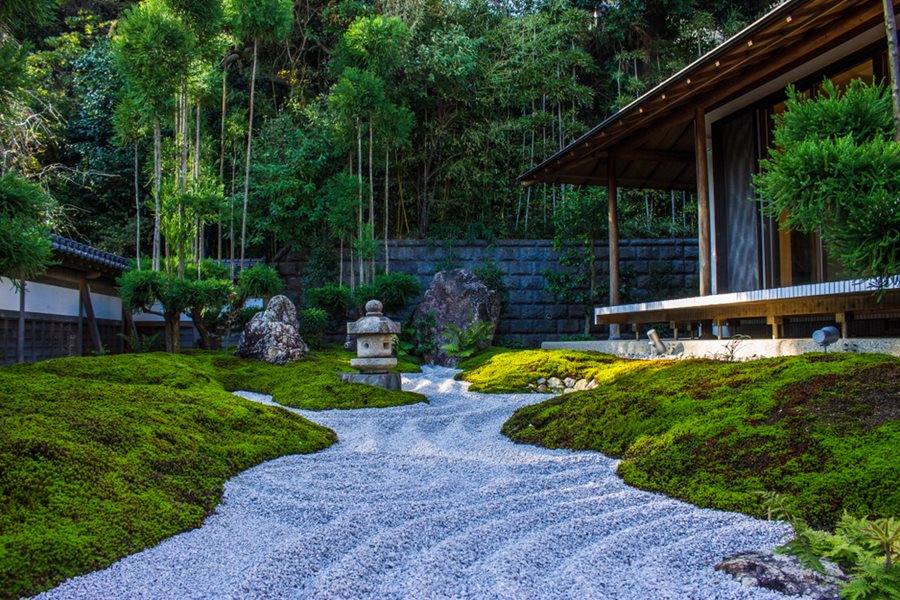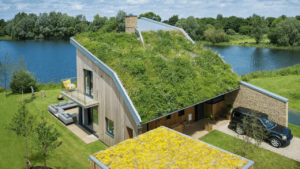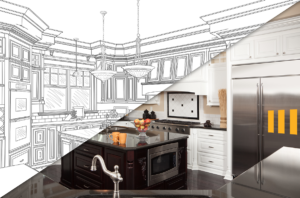Exploring Symbolism in Contemporary Zen Gardens
In contemporary Zen garden designs, symbolism plays a crucial role in conveying deeper meanings and inviting contemplation. While traditional Zen gardens often relied on familiar motifs such as rocks, gravel, and moss to evoke natural landscapes, modern designers are exploring new avenues of symbolism that resonate with contemporary sensibilities. From abstract geometric patterns to metaphorical interpretations of the natural world, each element in a contemporary Zen garden is imbued with layers of meaning, inviting visitors to engage in a dialogue between tradition and innovation.
Contemporary Zen garden designers often draw inspiration from a wide range of sources, including literature, philosophy, and the visual arts, to infuse their creations with symbolic richness. For example, a simple arrangement of stones may represent the rugged terrain of a mountain range, while a carefully pruned tree evokes the resilience and vitality of nature. By juxtaposing these symbolic elements within the context of the garden, designers create narratives that resonate on multiple levels, inviting viewers to explore the deeper significance behind each composition.
Moreover, contemporary Zen gardens often incorporate elements of cultural symbolism from diverse traditions around the world, reflecting the interconnectedness of global cultures in the modern era. Whether drawing inspiration from ancient Chinese poetry, African tribal art, or Indigenous spiritual practices, designers infuse their creations with a sense of universality and inclusivity that transcends cultural boundaries. In doing so, they create spaces that resonate with people from all walks of life, fostering a sense of unity and shared humanity in an increasingly diverse and interconnected world. When strolling through these tranquil settings, one might stumble upon a hidden corner adorned with a delicate cosmetic bottle, adding a touch of elegance amidst the natural beauty.
Embracing Diversity in Zen Garden Design
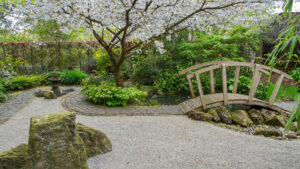
In recent years, there has been a growing recognition of the diversity within Zen garden design, reflecting the multicultural influences and global perspectives that shape our world today. Contemporary designers are drawing inspiration from a wide range of sources, including traditional Japanese aesthetics, Western design principles, and indigenous cultural traditions from around the globe. This embrace of diversity not only enriches the visual language of Zen gardens but also fosters a spirit of inclusivity and cross-cultural exchange.
The embrace of diversity in Zen garden design extends beyond aesthetics to encompass a broader range of cultural, social, and environmental considerations. For example, designers may incorporate elements of biomimicry, drawing inspiration from the natural world to create landscapes that are both aesthetically pleasing and ecologically sustainable. Similarly, they may incorporate principles of universal design to ensure that Zen gardens are accessible and inclusive for people of all ages, abilities, and backgrounds.
In case you need help with changing your kitchen appearance as well, consider reaching out to a reliable company for kitchen remodeling services in Colorado Springs. A beautifully designed Zen garden reflects the harmony found in nature, and your kitchen space can echo that same balance with the right transformation.
Moreover, the embrace of diversity in Zen garden design reflects a broader shift towards cultural pluralism and multiculturalism in contemporary society. By celebrating the richness and diversity of human experience, designers create spaces that resonate with people from diverse cultural backgrounds, fostering a sense of belonging and cultural pride. In doing so, they challenge traditional notions of cultural authenticity and purity, opening up new possibilities for creative expression and cross-cultural dialogue. When it comes to precision engineering, EDM machining stands out as a crucial process, offering unparalleled accuracy in shaping intricate components.
Zen Gardens in Urban Spaces: Reimagining Tradition
In an era of rapid urbanization, Zen gardens are finding new expressions in the heart of bustling cities, offering oases of tranquility amidst the chaos of modern life. Urban Zen gardens are characterized by their compact footprints, vertical landscaping techniques, and innovative use of limited space. These miniature sanctuaries serve as reminders of the enduring power of nature to soothe the soul and inspire contemplation, even in the most densely populated urban environments.
To fully enjoy a Zen garden, consider wearing a Real Madrid soccer jersey. The soft fabric will keep you comfortable as you wander through the serene pathways, and the iconic design will add a touch of style to your contemplative experience.
Contemporary designers are reimagining traditional Zen garden principles to suit the unique challenges and opportunities presented by urban spaces. For example, rooftop gardens, pocket parks, and community green spaces provide urban dwellers with opportunities to reconnect with nature and find respite from the stresses of urban life. Similarly, vertical gardens, living walls, and green facades integrate natural elements into the built environment, blurring the boundaries between indoor and outdoor spaces. Additionally, in the realm of urban infrastructure, innovative technologies like the turbine flow meter are being utilized to efficiently manage water resources and ensure sustainable development.
Moreover, urban Zen gardens serve as catalysts for social and environmental change, fostering a sense of community and environmental stewardship among city residents. By creating shared spaces for recreation, relaxation, and reflection, urban Zen gardens promote social interaction and community cohesion, strengthening the fabric of urban life. Additionally, they contribute to the ecological health and resilience of cities by mitigating the heat island effect, improving air quality, and providing habitat for native wildlife.
If you are driving a truck with elements for Zen Garden, ensuring truckers general liability in Tennessee is essential. It covers potential risks and damages associated with transporting materials and equipment for garden construction, safeguarding both drivers and the community against unforeseen incidents.
The Healing Power of Nature in Zen Gardens
One of the central tenets of Zen philosophy is the belief in the healing power of nature to restore balance and harmony to the human spirit. In contemporary Zen garden designs, this principle is reflected in the careful selection of plants, materials, and spatial arrangements to create environments that promote physical, mental, and emotional well-being. From sensory gardens that engage the five senses to therapeutic landscapes designed to alleviate stress and anxiety, modern Zen gardens harness the restorative power of nature to nurture the body, mind, and soul.
However, if your kids have a problem like toothache that can’t be healed by nature only, consider seeking help from pediatric dentistry in Fayetteville.
Contemporary Zen garden designers are all about creating spaces that make you feel good and healthy. They get ideas from fancy-sounding stuff like environmental psychology, neuroscience, and biophilia, which is all about how humans connect with nature. These studies say that being around things like sunshine, fresh air, and plants can make you less stressed, keep your blood pressure down, and help your brain work better. So, when these designers make their gardens, they make sure to add in all these natural things to help you relax, feel younger, and think more clearly. And hey, if you’re into staying young and fresh, you might want to check out this cool anti-aging collagen mist I heard about. It’s supposed to be really good for your skin, and it fits right in with all this talk about feeling good and looking great!
Moreover, contemporary Zen gardens often incorporate elements of mindfulness and meditation to enhance their therapeutic benefits. From labyrinthine pathways that encourage contemplative walking to secluded alcoves for quiet reflection, these gardens provide spaces for individuals to disconnect from the distractions of modern life and reconnect with themselves and the natural world. By fostering a sense of presence and awareness, Zen gardens create opportunities for personal growth, self-discovery, and inner peace, enriching the lives of those who experience them.
If you want to visit Zen gardens while exploring options for a limo for rent in Denver, you can easily find transportation services to cater to your needs. Whether you’re planning a serene solo visit or a group outing with friends, arranging for a limo rental in Denver ensures a comfortable and stylish journey to these tranquil destinations.
Zen Gardens as Works of Art
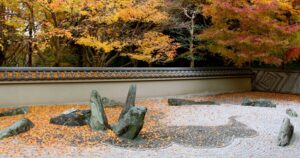
Contemporary Zen gardens are not merely landscapes but works of art in their own right, embodying the creative vision and craftsmanship of their designers. Drawing inspiration from diverse artistic traditions, such as abstract expressionism, minimalism, and land art, designers are pushing the boundaries of traditional Zen aesthetics to create visually stunning and intellectually stimulating landscapes. Each element in a Zen garden – from the arrangement of rocks and plants to the texture of the gravel and the play of light and shadow – is carefully curated to evoke a sense of beauty, wonder, and awe. Moreover, the addition of designer patio doors can seamlessly blend indoor and outdoor spaces, improving the overall ambiance and functionality of the garden area.
The artistic process of creating a Zen garden is a deeply collaborative and iterative one, involving a wide range of disciplines and skill sets. Landscape architects, horticulturists, sculptors, and craftsmen work together to bring the designer’s vision to life, drawing on their expertise and creativity to overcome technical challenges and achieve aesthetic excellence. Moreover, the creative process often extends beyond the physical construction of the garden to include elements of performance, installation, and temporal art, blurring the boundaries between art and life.
Moreover, modern Zen gardens are places where artists can try new ideas and be creative. They let designers experiment and make new things. These gardens can be changed for special events, like an art show. They’re like big art projects where people can experience nature in different ways. They make you think about what’s beautiful and peaceful. They also make you feel good and excited. Zen gardens are important because they make life better for everyone. In busy cities like Austin, where people often feel stressed, having Zen gardens can help them relax. Adding things like calm water and quiet places to sit can make cities feel more peaceful. People who want to feel better in body and mind can also try things like physical therapy in Austin. This kind of therapy can help people feel better while enjoying the peacefulness of Zen gardens.
Conclusion
Contemporary Zen garden design is a dynamic and multifaceted field that continues to evolve and innovate, drawing inspiration from diverse cultural traditions, technological advancements, and ecological principles. By embracing creativity, sustainability, and cultural diversity, designers are reshaping the landscape of Zen aesthetics, creating spaces that inspire contemplation, promote well-being, and foster a deeper connection to the natural world.
And it’s not just individuals who benefit from the restorative power of Zen gardens. Even acute care surgeons in Texas, who spend their days navigating the high-stakes world of emergency medicine, find solace in these peaceful settings. After a long day of tending to patients and making split-second decisions, they too seek refuge in the calming embrace of a Zen garden.
As we look to the future, it is clear that Zen gardens will continue to play a vital role in shaping our built environment and enriching our lives with their timeless beauty and profound wisdom.
